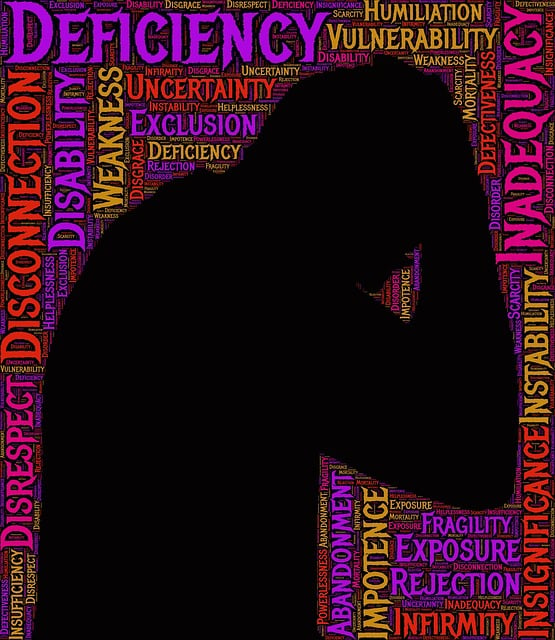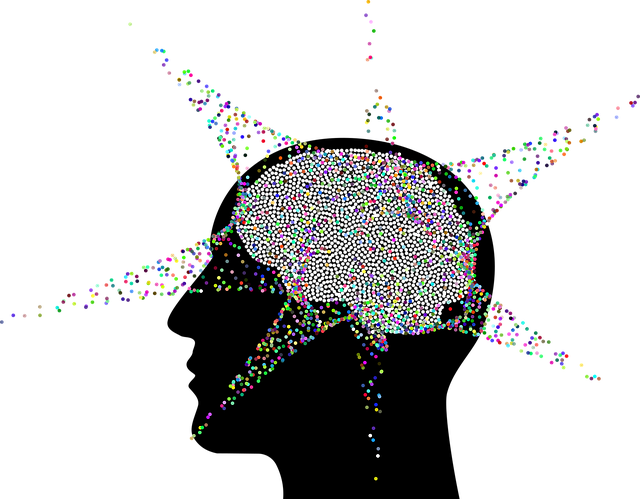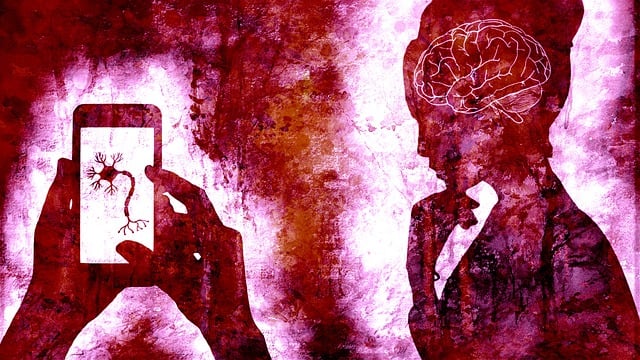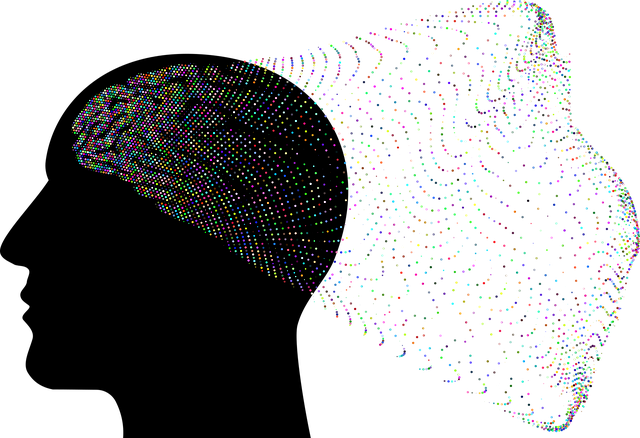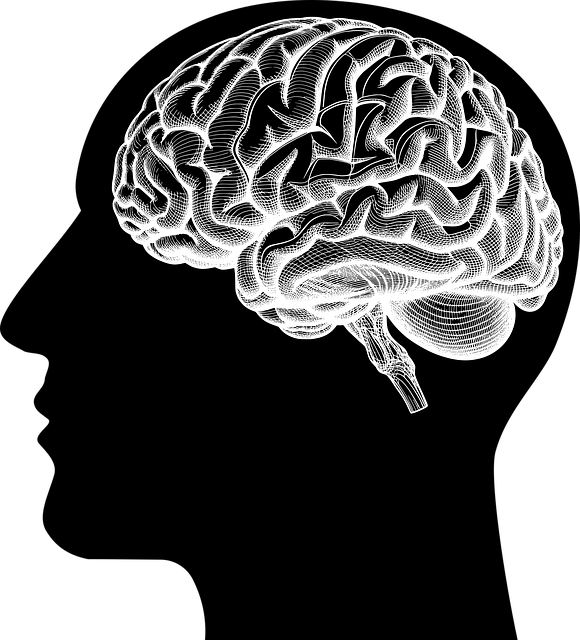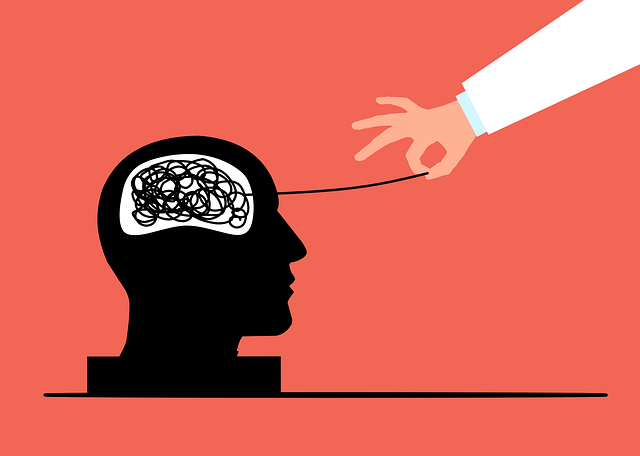The text explores how stigma surrounding mental illness creates significant barriers to recovery, impacting individuals' willingness to discuss their struggles or seek support. This internalized shame is especially detrimental in communities with limited mental health resources, fostering a culture of silence. The Wheat Ridge Stress Management Therapy (WRSMT) addresses this by offering evidence-based practices like Mindfulness Meditation and personalizing interventions through risk assessments. Educational initiatives, including workshops and seminars, play a crucial role in combating stigma through mental health education and culturally competent care. Media representation also significantly influences public perceptions, with positive narratives fostering empathy. Community engagement, such as support groups and events, further strengthens these efforts, empowering individuals to adopt consistent self-care routines and create supportive environments free from judgment.
Mental illness stigma remains a significant barrier to effective treatment and recovery. This article explores comprehensive strategies aimed at reducing this social burden, including an in-depth look at Wheat Ridge Stress Management Therapy’s role in fostering understanding and acceptance. We delve into educational initiatives that combat misconceptions, analyze media representations’ impact on public perception, and emphasize the critical importance of community engagement in creating supportive environments for those navigating mental health challenges.
- Understanding Mental Illness Stigma: Its Impact and Origins
- The Role of Wheat Ridge Stress Management Therapy in Stigma Reduction
- Educational Initiatives: Dispelling Misconceptions about Mental Health
- Media Representation and its Influence on Perceived Stigma
- Community Engagement: Fostering Supportive Environments for Recovery
Understanding Mental Illness Stigma: Its Impact and Origins

Stigma surrounding mental illness is a pervasive issue that often prevents individuals from seeking help and hinders their path to recovery. It stems from various sources, including historical misconceptions, fear of the unknown, and societal pressures. Mental health issues are as legitimate as any physical ailment, yet the associated stigma creates a barrier, leading to increased anxiety, depression, and social isolation for those affected. This internalized shame can deter people from discussing their struggles openly or reaching out for support.
The impact of this stigma is profound, especially in communities where mental health resources are limited. It contributes to a culture of silence, making it challenging for individuals to recognize and address their mental health challenges. For instance, in Wheat Ridge Stress Management Therapy sessions, therapists often encounter clients who struggle with self-stigma, making it difficult for them to embrace therapeutic practices like Mindfulness Meditation. Effective stigma reduction requires comprehensive strategies, including Mental Health Education Programs Design that foster understanding and empathy, as well as Risk Management Planning for Mental Health Professionals to ensure a supportive environment for all clients.
The Role of Wheat Ridge Stress Management Therapy in Stigma Reduction

Wheat Ridge Stress Management Therapy plays a pivotal role in stigma reduction efforts surrounding mental illness. By focusing on evidence-based practices such as Mindfulness Meditation, this therapeutic approach empowers individuals to manage stress and cultivate resilience, thereby fostering better mental health outcomes. Through regular sessions, clients develop skills to navigate life’s challenges with poise, enhancing their overall well-being and reducing the likelihood of internalizing or perpetuating stigmatized beliefs about mental illness.
Moreover, Wheat Ridge Stress Management Therapy integrates Mind Over Matter principles, enabling participants to challenge negative thought patterns and promote self-compassion. This not only helps in managing symptoms but also serves as a powerful tool for dispelling myths and misconceptions that contribute to stigma. For mental health professionals, a comprehensive Risk Assessment is crucial to tailor interventions like this therapy, ensuring personalized care and ultimately contributing to a more supportive societal environment for individuals navigating mental illness.
Educational Initiatives: Dispelling Misconceptions about Mental Health

Educational initiatives play a pivotal role in reducing the stigma surrounding mental illness by aiming to dispel common misconceptions and promote understanding. Schools, communities, and organizations across the country are implementing programs that focus on Mental Health Awareness, emphasizing the importance of early identification and support for those struggling with their mental well-being. These efforts often include workshops, seminars, and interactive sessions that encourage open conversations about mental health issues.
By integrating topics like Mindfulness Meditation and Cultural Sensitivity in Mental Healthcare Practice, these educational initiatives ensure that individuals from diverse backgrounds receive culturally competent care tailored to their unique needs. Such approaches not only help reduce the stigma but also empower people to seek assistance, providing them with tools for stress management, such as those offered by Wheat Ridge Stress Management Therapy. This holistic approach contributes to a more inclusive and supportive environment where mental health is prioritized and treated with the same level of importance as physical health.
Media Representation and its Influence on Perceived Stigma

The media plays a significant role in shaping public perceptions about mental illness and can either perpetuate or reduce stigma. Often, stereotypes and misconceptions are fueled by sensationalized stories or limited portrayals in movies, television shows, and news coverage. These representations can lead to further marginalization of individuals facing mental health challenges, especially when they are depicted as dangerous, unpredictable, or weak. On the other hand, positive media narratives that showcase recovery, resilience, and diverse experiences can foster empathy and understanding.
Wheat Ridge Stress Management Therapy, alongside initiatives like Healthcare Provider Cultural Competency Training and Compassion Cultivation Practices, recognizes the power of media in stigma reduction. By promoting Trauma Support Services and encouraging responsible storytelling, these efforts aim to create a more inclusive environment where individuals with mental health conditions are seen not just as patients but as whole people deserving of support and empathy.
Community Engagement: Fostering Supportive Environments for Recovery

In the fight against mental illness stigma, community engagement plays a pivotal role in fostering supportive environments conducive to recovery. Wheat Ridge Stress Management Therapy emphasizes the power of collective action to create a culture where individuals affected by mental health challenges feel understood and supported. By organizing community events, workshops, and support groups, residents can actively contribute to breaking down barriers and promoting empathy. These initiatives not only educate but also encourage open conversations about mental health struggles, helping to dispel myths and misconceptions that often fuel stigma.
Fostering a supportive environment involves equipping individuals with practical tools for self-care, such as Inner Strength Development techniques and Conflict Resolution Techniques. Encouraging the adoption of consistent Self-Care Routine Development for Better Mental Health practices within communities can significantly impact overall well-being. Through these collaborative efforts, communities become safer spaces where everyone feels empowered to seek help without fear of judgment, ultimately contributing to a more inclusive and compassionate society.
Mental illness stigma reduction is a multifaceted approach that involves understanding, education, media representation, and community engagement. Efforts like Wheat Ridge Stress Management Therapy play a pivotal role in fostering supportive environments for recovery by providing effective treatment options and dispelling misconceptions. Community initiatives and mindful media portrayal can significantly contribute to creating a more inclusive society where individuals with mental health challenges are supported and accepted. By combining therapeutic practices with educational programs, we can break down barriers and promote greater empathy and understanding, ultimately reducing the stigma surrounding mental illness.

